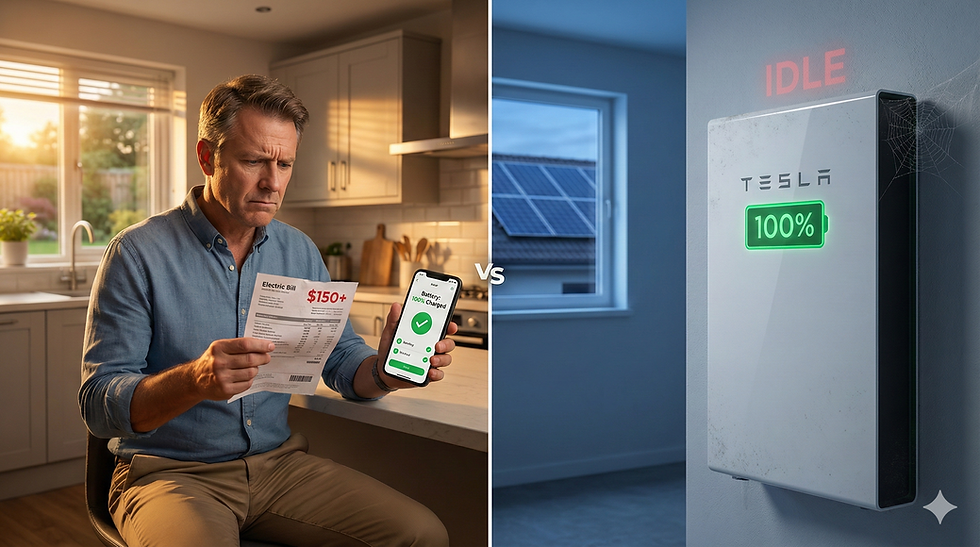Understanding the Return on Investment of Solar Panels
- IntegrateSun Company
- Nov 21, 2017
- 3 min read
Updated: Jan 31, 2024

Solar panels are an investment for homeowners. Like any investment, homeowners hope and expect that they will receive some type of financial benefit from the installation of solar panels. Going “green” is one of the most widely recognized reasons for switching to solar panels, but by itself it may not be a sufficient incentive to make the switch. While there are many great reasons to install solar panels, economic returns can be one of the most persuasive reasons.
It is important to examine a wide range of factors when calculating the possible return on investment including:
Costs of installation
Incentives, subsidies, and rebates
Changing energy markets
Increased home value
Overall output of your solar panels
Cost of Solar Installation
The first thing every homeowner should do is determine the costs associated with solar panels. The initial investment in solar energy could be anywhere from $10,000 to $40,000 depending on a range of factors. The price of the equipment is only one part of the overall costs. It is important to consider the additional costs associated with solar panels including installation, any possible taxes or fees, and the purchasing of permits required by law. Many homeowners are surprised when they learn the overall costs associated with an investment in solar energy, but there are ways to offset these costs.
DO YOU HAVE QUESTIONS ABOUT SOLAR ENERGY?
Solar Incentives, Subsidies, and Rebates
While the initial numbers may seem high, it is important to explore your options regarding subsidies and rebates. There are federal tax credits that homeowners can utilize to reduce the costs of installing solar panels. In addition, many states also offer incentives in the form of tax credits to entice homeowners to make the switch to solar energy. Each state differs in the types and amount of tax credits they offer. It is important to research the incentives in your state when calculating your possible return on investment. Offsetting initial costs through incentives, rebates, and subsidies is a great way to ensure a quicker return on investment.
Changing Energy Market
The energy market can be unpredictable and volatile. One of the biggest benefits of an investment in solar energy is the stability that comes with producing your own energy. Homeowners can avoid the possibility of rising utility costs and be protected from increased rates. Electricity rates are rising and the market remains unpredictable. A change to solar panels will allow you to be protected from these rising costs in the future.
Increased Home Value with Solar Panels
Many homeowners may be wary of converting to solar energy because they do not plan on staying in their home for the next 10 to 15 years. They may think that since they are planning a move, they will never get the return on investment that they desire. It is important to examine all aspects when determining the possible returns on your solar panels and a significant increase in home value will go a long way toward recouping your initial investment. The installation of solar panels can increase the value of your home by up to $15,000. This number can vary from state to state, but it is clear that the addition of solar panels increases property values and can make selling your home that much easier. This increase in home value makes solar panels a viable option for homeowners who may be planning a move in the next few years.
Overall Output of Your Solar Panels
Once you figure out the initial costs of installation, the possible incentives, subsidies, and rebates, as well as the increase to your home value, you can begin to calculate how the overall output of your solar panels will affect your return on investment. The amount of electricity generated could be the most important factor to consider. Your decreased utility costs and ability to generate your own electricity is where you will see a considerable and ongoing return on investment.
Determining how much electricity you are currently using is the first step toward figuring out how much you will save by converting to solar energy. Once you have determined current usage, you must determine the overall output of your solar panels. This will allow you to establish exactly how much you will be saving each month. Once you have your monthly savings calculated, you can easily estimate how long it will take to recoup your initial investment.
There are many factors to consider when deciding if solar panels are right for you. Going “green” is one of the benefits of switching to solar energy, but most homeowners care more about the possibility of saving money. There are resources online to help homeowners calculate payback time before making the leap into solar energy. Although initial costs may seem high, the possible incentives, changing energy markets, increased home value, and overall output of your system can make solar panels an excellent investment.



